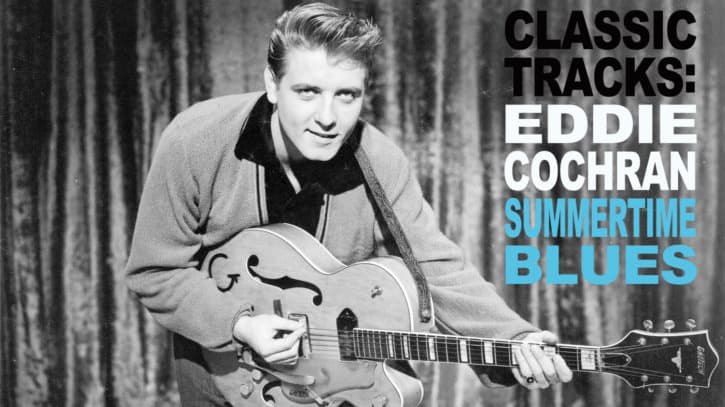
Eddie Cochran’s “Summertime Blues”: The Anthem of Teenage Rebellion
When Eddie Cochran released “Summertime Blues” in August 1958, the world of rock and roll was still in its infancy, but it was rapidly evolving. This song, which started as a humble B-side, quickly transcended its initial status to become a defining anthem for a generation. Peaking at number 8 on the Billboard Hot 100 on September 29, 1958, and reaching number 18 on the UK Singles Chart, “Summertime Blues” encapsulated the frustrations of youth in a way that resonated across both sides of the Atlantic.
“Summertime Blues” is more than just a rock and roll hit; it’s a cultural artifact that captures the essence of teenage angst. The lyrics tell the story of a young man caught between the pressures of adolescence and the expectations of the adult world. He’s frustrated with having to work all summer just to earn a little pocket money, and even more annoyed that his job keeps him from enjoying the freedom of the season. The struggle is real for him—he can’t go on dates or hang out with friends because he’s stuck working late, thanks to a boss who cares more about the business than his social life. When he tries to get out of work by claiming he’s sick, his parents, unsympathetic to his plight, refuse to let him use the family car due to his perceived laziness. The ultimate frustration comes when he contemplates taking his complaints to the United Nations, only to realize that, as a minor, his voice is easily dismissed by those in power.
Musically, Eddie Cochran‘s contribution to “Summertime Blues” was as significant as the song’s lyrical content. Cochran wasn’t just the vocalist; he played every guitar part, provided the bass vocal that echoes throughout the track, and even contributed hand claps that add to the song’s distinctive rhythm. Recorded at Gold Star Recording Studios in Hollywood, California, on March 28, 1958, the track features Connie ‘Guybo’ Smith on electric bass and the legendary Earl Palmer on drums. The synergy between these musicians helped to create a sound that was both innovative and timeless.
The legacy of “Summertime Blues” is undeniable. It was inducted into the Grammy Hall of Fame in 1999, cementing its place as one of the most important songs in the history of rock and roll. Rolling Stone magazine ranked it number 73 on their list of the 500 Greatest Songs of All Time, and Q magazine placed it at number 77 on their list of the 100 Greatest Guitar Tracks. It’s also featured on the Rock and Roll Hall of Fame and Museum’s list of “The Songs That Shaped Rock and Roll,” and has made its way into various films and television shows, including “Caddyshack,” “This Boy’s Life,” and “Beverly Hills, 90210.”
“Summertime Blues” is more than just a song; it’s a snapshot of a moment in time when rock and roll was giving voice to the frustrations and dreams of a new generation. Eddie Cochran may have passed away young, but his music continues to resonate with audiences, reminding us all of the timeless nature of teenage rebellion and the power of rock and roll.